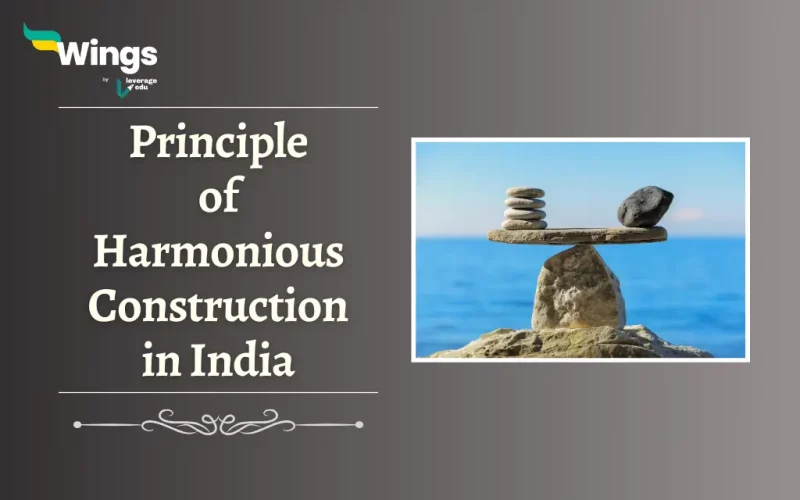The Principle of Harmonious Construction is one of the two ways through which the Supreme Court can exercise its power to resolve or settle any conflict between the Union and State under the Seventh schedule of the Indian Constitution. Furthermore, the other one is the Principle of Federal Supremacy. Additionally, the Union carries more owers than the State which is why it is even more important to define the line of distribution of powers between them. Read on to learn more in detail about the Principle of Harmonious Construction in India as well as a Case related to the Principle.
Also Read: What is the Difference Between States and Union Territories?
What is the Principle of Harmonious Construction?
Table of Contents [show]
To thrive in an age of cooperative and competitive federalism, States need to find common ground and minimize conflicts.
- Moreover, this means taking initiative with reforms in important areas like policing and agricultural marketing.
- As the name suggests Harmonious Construction means finding a way to either settle or solve a conflict between two entities.
- The Indian courts use a Principle called Harmonious Construction to make sense of situations where national and State laws, or even different parts of the Constitution, seem to contradict each other.
- Therefore, this approach ensures both laws can function together smoothly.
Also Read: What is Fiscal Federalism?
Harmonious Construction Case
A good example of this Principle in action is the 1959 case of the State of Rajasthan vs. G. Chawla.
- Here, the Supreme Court had to resolve a conflict between a Central law (the Prevention of Corruption Act) and a State law (the Rajasthan Public Servants Act).
- Therefore, the Court ruled that both laws could co-exist and operate in their spheres without causing any clash.
Collaboration between States and the Central government is key to establishing consistent national laws in vital sectors. Initiatives like ‘One Nation, One Ration Card’ highlight the growing need for such cooperation.
Related Blogs
This is all about the Principle of Harmonious Construction. Moreover, you may even read more blogs and empower yourself with knowledge regarding Civics and Polity!
 One app for all your study abroad needs
One app for all your study abroad needs















 45,000+ students trusted us with their dreams. Take the first step today!
45,000+ students trusted us with their dreams. Take the first step today!
